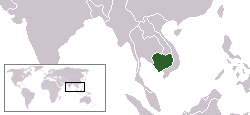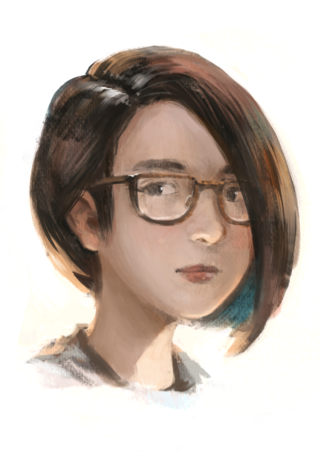Related Research Articles

GLAAD is an American non-governmental media monitoring organization. Originally founded as a protest against defamatory coverage of gay and lesbian demographics and their portrayals in the media and entertainment industries, it has since expanded to queer, bisexual, and transgender people.
Homosexuality has been documented in China since ancient times. According to one study by Bret Hinsch, for some time after the fall of the Han dynasty, homosexuality was widely accepted in China but this has been disputed. Several early Chinese emperors are speculated to have had homosexual relationships accompanied by heterosexual ones.

The GLAAD Media Award is a US accolade bestowed by GLAAD to recognize and honor various branches of the media for their outstanding representations of the lesbian, gay, bisexual and transgender (LGBTQ) community and the issues that affect their lives. In addition to film and television, the Awards also recognize achievements in other branches of the media and arts, including theatre, music, journalism and advertising.
China does not recognize same-sex marriage or civil unions. Since 1 October 2017, couples have been able to enter into guardianship agreements, offering partners some limited legal benefits, including decisions about medical and personal care, death and funeral, property management, and maintenance of rights and interests. Attempts to legalise same-sex marriage in 2020 were unsuccessful, but public opinion polls show that support for same-sex marriage is rising in China.

Lesbian, gay, bisexual, and transgender (LGBTQ) people in Cambodia face legal challenges not experienced by non-LGBT residents. Although same-sex sexual activity is legal in Cambodia, it provides no anti-discrimination protections for LGBT people, nor does it prohibit hate crimes based on sexual orientation and gender identity.

Vito Russo was an American LGBT activist, film historian, and author. He is best remembered as the author of the book The Celluloid Closet, described in The New York Times as "an essential reference book" on homosexuality in the US film industry. In 1985, he co-founded the Gay and Lesbian Alliance Against Defamation (GLAAD), a media watchdog organization that strives to end anti-LGBT rhetoric, and advocates for LGBT inclusion in popular media.

Lesbian, gay, bisexual, and transgender (LGBT) people in Albania face legal challenges not experienced by non-LGBT residents, although LGBT people are protected under comprehensive anti-discrimination legislation. Both male and female same-gender sexual activities have been legal in Albania since 1995, but households headed by same-sex couples are not eligible for the same legal protections available to opposite-gender couples, with same-sex unions not being recognized in the country in any form.

Lesbian, gay, bisexual, and transgender (LGBT) people in Azerbaijan face significant challenges not experienced by non-LGBTQ residents. Same-sex sexual activity has been legal in Azerbaijan since 1 September 2000. Nonetheless, discrimination on the basis of sexual orientation and gender identity are not banned in the country and same-sex marriage is not recognized.

Lesbian, gay, bisexual, transgender and queer (LGBTQ) people in the People's Republic of China (PRC) face legal and social challenges that are not experienced by non-LGBTQ residents. While both male and female same-sex sexual activity are legal, same-sex couples are currently unable to marry or adopt, and households headed by such couples are ineligible for the same legal protections available to heterosexual couples. No explicit anti-discrimination protections for LGBTQ people are present in its legal system, nor do hate crime laws cover sexual orientation or gender identity.

Lesbian, gay, bisexual, and transgender (LGBTQ) people in Bangladesh face widespread social and legal challenges not experienced by non-LGBT people.

LGBT representation in children's television is representation of LGBT topics, themes, and people in television programming meant for children. LGBT representation in children's programming was often uncommon to non-existent for much of television's history up to the 2010s, but has significantly increased since then.

Lesbian, gay, bisexual, and transgender (LGBTQ) people in the Tibet encounter specific legal and social challenges not faced by non-LGBT residents. The Tibetan Plateau, spanning areas under the sovereignty of both the People's Republic of China and the Republic of India, has variations in the legal treatment of LGBT individuals between these nations. Since 1997 in China and 2018 in India, all forms of same-sex sexual activities were legalised. However, in both nations, same-sex couples lack the rights to marry or adopt children, and there is no provision for common law marriages, same-sex marriage, civil unions, or issue partnership certificates.
Queer China, 'Comrade' China, directed by Cui Zi’en, is a 2008 independent Chinese documentary about homosexuality in China. The film features interviews with prominent academics and activists. Interviewees include the film's director Cui Zi'en, actress and activist Shitou, sociologist Li Yinhe and director Zhang Yuan. It covers 80 years of evolution of Chinese attitudes on LGBTQ people, ending with the proposed 2003 Same-sex Marriage Bill.
Tongqi are Chinese women who have married gay men. Similarly, tongfu is the corresponding neologism for Chinese men who have married lesbian women. Liu Dalin, among the first sexologists in mainland China, estimated that 90% of gay men in China marry a heterosexual woman. By comparison, 15–20% of gay men married women in the United States as of 2010. Sexologist and sociologist Li Yinhe believes there are 20 million male homosexuals in China, of whom 80% marry women.
Australia is one of the most LGBTQ-friendly countries in the world. In a 2013 Pew Research poll, 79% of Australians agreed that homosexuality should be accepted by society, making it the fifth most supportive country in the survey behind Spain (88%), Germany (87%), and Canada and the Czech Republic. With a long history of LGBTQ rights activism and an annual three-week-long Mardi Gras festival, Sydney is considered one of the most gay-friendly cities in the world.
The history of lesbian, gay, and bisexual people in China spans thousands of years. Unlike the histories of European and European-ruled polities in which Christianity formed the core of heavily anti-LGBT laws until recent times, non-heterosexual states of being were historically treated with far less animosity in Chinese states. For a period of the modern history of both the Republic of China and People's Republic of China in the 20th century, LGBT people received more stringent legal regulations regarding their orientations, with restrictions being gradually eased by the beginning of the 21st century. However, activism for LGBT rights in both countries has been slow in development due to societal sentiment and government inaction.

Sexual orientation and gender identity in the Australian military are not considered disqualifying matters in the 21st century, with the Australian Defence Force (ADF) allowing LGBT people to serve openly and access the same entitlements as other personnel. The ban on gay and lesbian personnel was lifted by the Keating government in 1992, with a 2000 study finding no discernible negative impacts on troop morale. In 2009, the First Rudd government introduced equal entitlements to military retirement pensions and superannuation for the domestic partners of LGBTI personnel. Since 2010, transgender personnel may serve openly and may undergo gender transition with ADF support while continuing their military service. LGBTI personnel are also supported by the charity DEFGLIS, the Defence Force Lesbian Gay Bisexual Transgender and Intersex Information Service.

Wei Tingting is a Chinese LGBTI+ and feminist activist, writer and documentary filmmaker. She is one of the Feminist Five.
References
- ↑ Dinah Gardner (October 2011). "Those Gay Children of Mine". Time Out Beijing.
- ↑ "First ever China Rainbow Media Awards announces winners". ILGA. 2011-12-13. Archived from the original on 2012-02-01. Retrieved 2012-02-06.